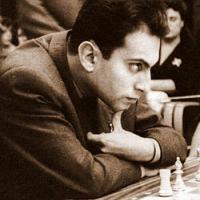
The Psychology of the Sacrifice
Today we will be looking at the psychological effects of a material sacrifice. No matter how hard we try to look at the board objectively, no real chess player can remain totally dispassionate when a sacrifice is made, either by himself or by his opponent. When we sacrifice, we are giving away our people. We are putting the game into do-or-die territory. And when a sacrifice is made against us, regardless of our many years of tournament experience, there still might be a child in there saying “he thinks he can beat me without his queen?!”
When a sacrifice is made, the players’ mental states are usually affected in different ways. Let’s look at some of them.
The sacrificer gets a boost
Usually when a player makes a sacrifice he gets a surge of adrenaline. He is taking a risk. He has sacrificed something physical (material) to gain something “spiritual”. He is making an investment for the future, hoping that this sacrifice will lead to a positive result. He is taking control of the game. Since sacrifices are considered “beautiful”, he can imagine that he might play the “game of the century”. This boost could help, but could also cause the player to do something reckless.
The sacrificer might feel the need to hurry
Material is just one element of a chess position, along with space, weaknesses, development, et cetera. But players who are down material often feel a panic, as if they need to “do something” very quickly and decisively. Often it is the case that after sacrificing, you need to follow up energetically. On the other hand, if your position is riddled with weaknesses but you have active pieces as compensation, you have to play just as energetically to use your temporary advantage as if you were down a knight. If you have a long-term disadvantage you always have to play energetically, even if that disadvantage is something other than material. Nevertheless, being down material is more “personal” than other long-term weaknesses. We can see that stack of pieces on the side of the board – and it is smaller than the one our opponent has!
So, often a player who sacrifices something might feel too great a need to hurry, and overlook the possibility of playing more slowly. Sometimes you can play for quite a long time down material. Keep this in mind.
The sacrificee feels he has lost control of the game
It is not a pleasant feeling to be someone else’s canvass. Your opponent is playing the game of the century, and you are just the unwilling participant. Often even if the sacrifice is incorrect, the defender will still feel this way. The sacrificer did not have to sacrifice; he made an active choice in that. But the defender has a sort of negative role. He is the examiner; either the sacrifice is incorrect or he will lose. But he did not choose this role. For many people this is a bad psychological position. Certain kinds of aggressive players might collapse when a piece is sacrificed against them.
It has been said that one of the reasons Mikhail Tal was so successful with sacrifices was that he took control of the game. His opponents became mere spectators and became abstracted from the events on the board, which – after all – they did not cause. Let's see one of his most famous games, a storm of a game against Oscar Panno from the Portoroz Interzonal of 1958:
Objectively, Tal's sacrifices did not lead to a better position. In fact, he was probably much worse. But the fact is that he chose to play that way. Panno did not, and as a result he was no longer really playing the game. When the time came to make his own decisions, he was no longer there.
Both players might “annotate the game in their heads”
I think it is not so unusual for players to “annotate the game in their heads”. That is, they imagine what others might say about the game in later news articles, or what they themselves might write about the game. I don’t think this is a very good way to think. It is a distraction and might also make the players lose objectivity.
For the sacrificer, he could easily get worked up imaging all the glowing annotations of the game later. The sacrificee might also imagine this, but more as a fear that the game he is losing might be spread around the world and he will get a sort of “negative immortality” (like Kieseritsky). This could even lead the defender to make decisions to lose prosaically, instead of trying the sternest test of the sacrifice!
Now remember, no amount of psychology can defeat good moves. I often see average players making some silly moves, supposedly for practical reasons. Such as playing a goofy opening to "get the opponent out of theory". Or making some unsound sacrifice to "rattle the opponent". You should always try to play the best moves. That is the only way to get better at chess. But I believe these psychological factors still play a role, at all levels.
Here is a game I played which involves sacrifices against the strong Greek GM Banikas. For a long time his play seemed to be going very smoothly. He sacrificed a pawn in the opening for positional purposes, was moving quickly and was about to start a direct attack on my king. Suddenly I was able to create a lightning counterattack by sacrificing first a pawn and then a knight. It was the only way for me to play. It appears that objectively my play was correct. Nevertheless he could have defended better. But having been "in control" (at least it appeared) for the first part of the game, he could not recover from losing the control of the game. It turned out to be among my best games.



